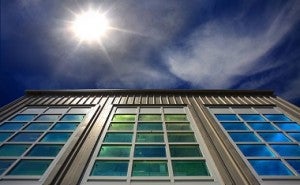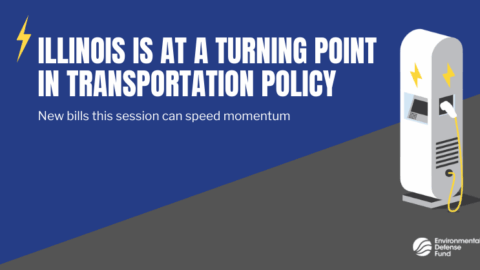Barriers to Clean Energy Financing Could Fall with EPA Plan
 Considering installing solar panels or weatherization to go along with the remodeling project you’ve been thinking about? Energy bills would drop and your carbon footprint would shrink, a true win-win.
Considering installing solar panels or weatherization to go along with the remodeling project you’ve been thinking about? Energy bills would drop and your carbon footprint would shrink, a true win-win.
Whether it’s financially doable may depend on where you live, of course. Clean energy financing in the United States is a hodgepodge of public and private-sector programs that vary considerably across, and within, state boundaries.
What will it take?
Connecticut homeowners in some – but not all – cities can tap into the state’s Smart-E loans available from five- to 12-year terms at an interest rate that won’t exceed 6.99 percent, and with no equity down.
In sunny Arizona, you can take advantage of SolarCity’s new loan program to finance your solar panels, also with no down payment. But not so in neighboring New Mexico, because the company’s loans are only available in eight states for now.
And then there’s Florida, a state where powerful utilities are pushing regulators to undo energy-efficiency targets and where policies, to this day, prevent so-called third-party power providers to enter the market. Result: The Sunshine State has virtually no solar energy – or other clean power for that matter. As for financing, it’s a moot point.
What will it take? Try a Clean Power Plan that nudges and pushes everybody to finally move in the right direction.
In fact, once the Environmental Protection Agency’s proposal to cut emissions from fossil fuel plants goes into effect, we expect clean energy alternatives to take off nationwide – including in states that have been slow to get on board.
Coming soon: Affordable clean energy loans
So far, financing barriers have been a major obstacle to large-scale adoption of clean energy options such as rooftop solar panels and energy efficiency upgrades.[Tweet “Financing barriers have been a major obstacle to large-scale adoption of clean energy, Clean Power Plan can help http://ow.ly/DwpO3 “]
Under the proposed Clean Power Plan, states are required to cut power plant emissions to a state-specific target, but are given the flexibility to choose the most practical and cost-effective ways to meet their goal. This is great news for consumers because certain clean energy alternatives, particularly energy efficiency, have been found to be less expensive than traditional power generation.
With a federal mandate to cut emissions, we expect states to leverage existing financing mechanisms such as On-bill repayment programs, Property Assessed Clean Energy (PACE), Green Banks, and other innovative programs that can help homes and businesses overcome financing barriers.
States pioneering financing programs
Fortunately, a number of forward-thinking states have already taken action.
Today there are Green Banks in New York and Connecticut, active PACE programs in several states including California, Connecticut and Florida; and dozens more states with PACE legislation enacted. Connecticut, California and Hawaii are developing On-bill repayment programs, following in the footsteps of New York, North Carolina, Oregon, and other early adopters.
As the Clean Power Plan kicks into gear, these programs will serve as models for other states looking to offer clean energy opportunities for homes and businesses.
Market moving in the right direction
The cost of installing residential roof-top solar panels dropped about 13 percent in 2013, marking the fourth consecutive year with price declines, and that trend is expected to continue this year.
Meanwhile, the price of electricity sold to utilities from large-scale solar power projects has fallen by more than 70 percent since 2008, to $50 per MWh.
All this works in consumers’ favor. Time, perhaps, to give that home improvement project some more thought?
Photo source: Flickr/DOE
This post originally appeared on our EDF Voices blog.












